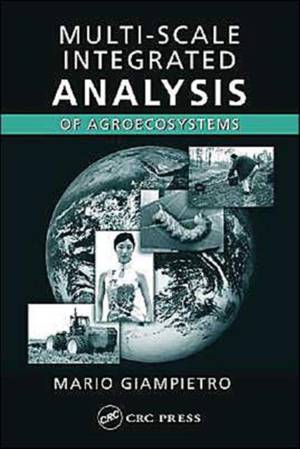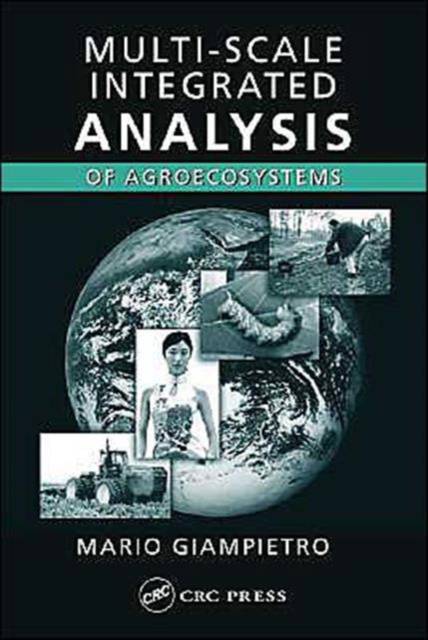
- Afhalen na 1 uur in een winkel met voorraad
- Gratis thuislevering in België vanaf € 30
- Ruim aanbod met 7 miljoen producten
- Afhalen na 1 uur in een winkel met voorraad
- Gratis thuislevering in België vanaf € 30
- Ruim aanbod met 7 miljoen producten
Zoeken
Omschrijving
Ecologists, agronomists, and others who may question the validity of current models for determining sustainable growth of agroecosystems, need a new set of analytical tools that more effectively address the complex nature of related processes. Those who challenge traditional assumptions of optimization and static factors in agricultural modeling demand new methods beyond differential equations and traditional statistical tests. Multi-Scale Integrated Analysis of Agroecosystems explores alternative ways to study agricultural sustainability, presenting new approaches to organizing data and applying complex systems theory to actual cases. This innovative text recognizes the changing dynamics of the multiple processes and cross-relations within an environment, proposing a clearer analysis of agroecosystems than that which can be provided by rigid, reductionist methods. Main concepts, new vocabulary and narratives, and practical examples open the book, followed by technical chapters that provide a more detailed explanation of concepts. The final section of the book presents a tool kit based on these concepts, resulting in strong support of empirical observations that challenge traditional notions regarding the sustainability of farming systems, food systems, and agroecosystems.
Specificaties
Betrokkenen
- Auteur(s):
- Uitgeverij:
Inhoud
- Aantal bladzijden:
- 470
- Taal:
- Engels
- Reeks:
- Reeksnummer:
- nr. 10
Eigenschappen
- Productcode (EAN):
- 9780849310676
- Verschijningsdatum:
- 24/11/2003
- Uitvoering:
- Hardcover
- Formaat:
- Genaaid
- Afmetingen:
- 177 mm x 261 mm
- Gewicht:
- 1006 g

Alleen bij Standaard Boekhandel
+ 486 punten op je klantenkaart van Standaard Boekhandel
Beoordelingen
We publiceren alleen reviews die voldoen aan de voorwaarden voor reviews. Bekijk onze voorwaarden voor reviews.











